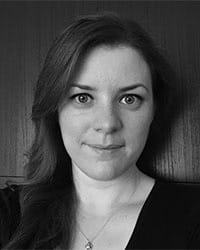By: Claire Wilson BSc. Last Updated: March 2024

If you’ve had any sort of traditional university experience, you’ll know that the vast majority of undergraduates are starting out in their late teens, straight from school.
As a result, you might feel like universities are meeting the needs of this group at the expense of others. Mature students can find themselves falling between the cracks of this system.
When we created our degree specifically for mature students, we knew we’d have to build safety nets around key areas where mature students typically struggle.
Let’s take a look at these key areas of difficulty and how we’ve chosen to help you through them…
Overwhelmed with content
As a mature student, it’s perhaps been a while since you were last in education.
Traditional university degrees move at an unrelenting pace and it’s up to each individual student to keep up with the class pace.
If you do happen to fall behind in a week where it’s taking you a little longer to understand the content or you’re having to do lots of extra reading, you could be playing catch up for weeks to come.
How our degree is different:
We assign each student a course coordinator at the start of the programme – they’ll work with you throughout the whole process, all the way to graduation.
As well as being a point of contact for any questions you might have, they check in with your progress every single week. If it looks like you’re struggling to complete the work or haven’t made it through the whole week’s content, they’ll get in touch to discuss any problems you’re having and help you put a plan in place to get back on track. This can involve taking a week off from new content to let you catch up.
You move through the course entirely at your own pace. If it’s taking a little longer to get through the materials at certain points, we take the stress of feeling like you’re “falling behind” away.
Life “gets in the way”
Mature students often have lots of other things going on in their lives… families, jobs, caring responsibilities, etc.
In a traditional university setting, there’s often not a whole lot of flexibility to change things if and when life inevitably “gets in the way”.
And let’s be honest, if you’re signing up to a 4 year programme, something’s probably going to come up at some point.
How our degree is different:
As outlined above, you have the ability to slow down the delivery of your programme and work at your own pace. If you need to take a couple of weeks off at short notice, you only ever need to get in touch with your course coordinator and let them know what’s going on.
In addition, we have built in “lock in” points at the end of year one and year two of our BSc (Hons) programme.
At these points, you get a recognised university accredited award from the University of South Wales and gain eligibility for the next year of study. You will also “lock in” your progress within the course.
If you had to take a break at either (or both) of these points, you could return at a later date and pick up exactly where you left off. There’s no time limit to this.
So you don’t need to try to predict the future and it doesn’t need to be the “perfect” time.
All you need to know right now is that you’re in a good position to make a start.
Assignments
Assignments fill even the most confident students with dread.
In traditional university settings you’re typically issued your assignments, left to make your best attempt at it (asking questions of the lecturers/tutors where you can), and submitting by the deadline (with the chance of a short extension if you can prove difficult circumstances).
“Best practice” for essay writing has changed over the years and it can sometimes take mature students an assignment or two to get the hang of elements that are different from when they last wrote academic essays.
There’s also the group of mature students who have never written university-level assignments or essays before. That group are typically left fending for themselves, perhaps guided towards resources in the library or an online guide about references.
How our degree is different:
Firstly, as with everything in our degree programme, your course coordinator is with you every step of the way.
They are the person you direct any and every question to during your course. So if you have any queries about the assignment / the deadline / the submission process, you’re never left wondering what action you need to take, just drop them an email.
We give a generous allocation of time to assignment writing within each module.
You’ll know your assignment deadlines for year one from the first week of the programme (and have the chance to tell us about plans you already have in place that might impact those) so you’ll have plenty of opportunity to protect time around those times if you want to.
You’ll also complete a Writing Skills module during the assignment writing time of module one in year one.
This module has been specifically designed to help mature students meet the expectations of written communication both within the assignments of a degree programme, and the workplace more generally. We’ll walk you through the essay writing process step by step and, by the end, you’ll have your module one assignment complete.
Since its introduction, this module has significantly improved the grades of our mature students for this first assignment, and for all subsequent assignments.
Ready to get started?
Check out this page for more course details and click the big red “apply now” button if you’re ready to get started!
You can always contact us or click on the blue circle at the bottom of the screen on this page if you’ve got any questions – we look forward to hearing from you!
About the Author
Claire Wilson
Content Marketing and Career Coaching
Claire runs GetReskilled’s Advanced Career Coaching Programme – our specially devised job hunting course that helps our trainees take that final step into employment by leading them through the job hunting process. She is extremely enthusiastic about helping people reach their final goal of employment in their new career path.
Claire has a BSc (Hons) in Medical Biology from Edinburgh University and spent 7 years working in the pharmaceutical and medical device industries.

Post Your Comments Below